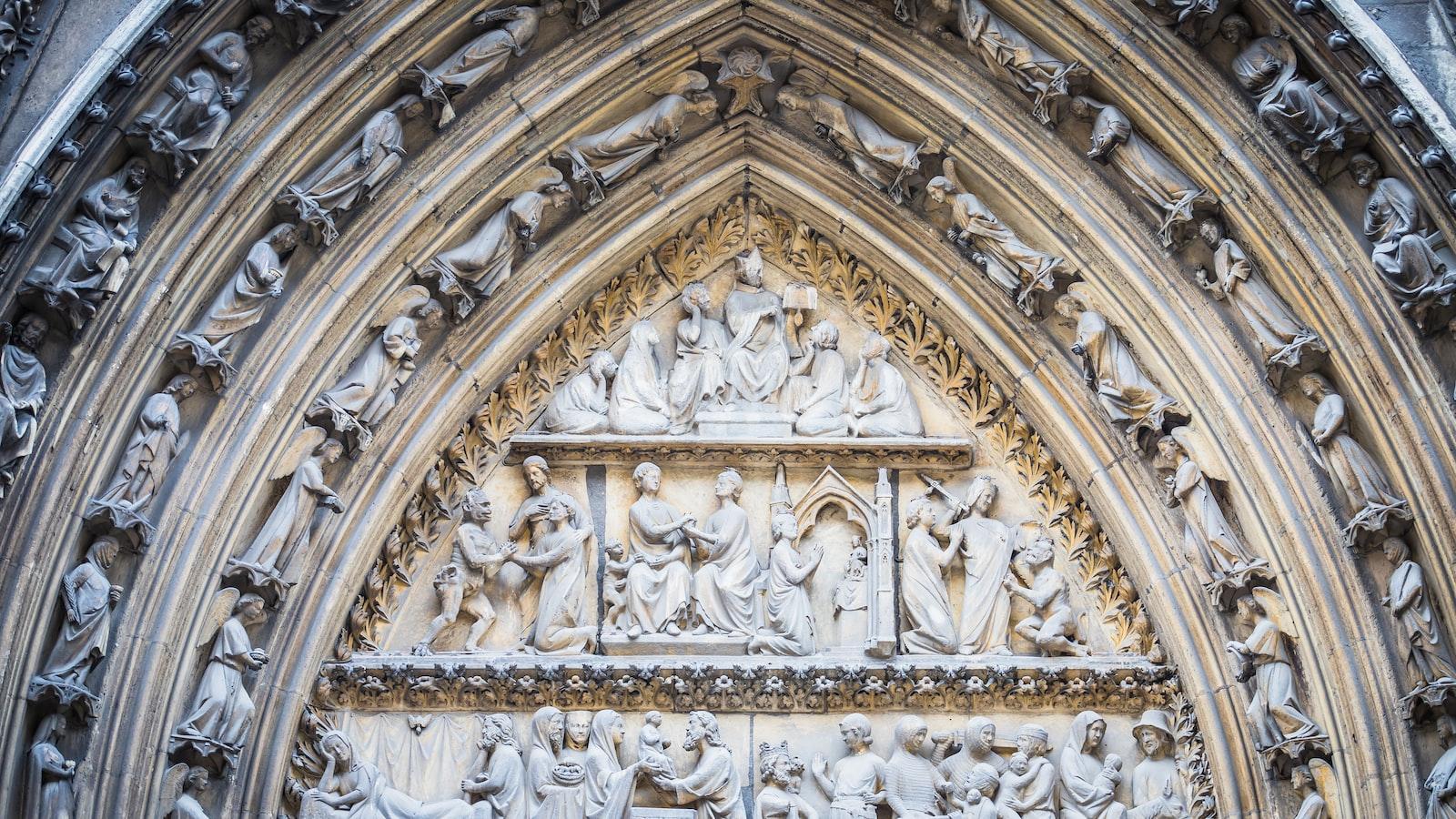Hey there! Have you ever wondered about the biblical meaning of Judah? Well, you’re in the right place! In this article, we’re going to dive into the biblical significance of Judah and uncover some fascinating insights. So, let’s get ready to explore the profound symbolism and rich history behind the name Judah. Get ready to be intrigued!
The biblical significance of Judah:
The name Judah holds great biblical significance throughout the Old Testament, representing not only a geographical region but also a tribe and an individual. Derived from the Hebrew word “Yehudah,” which means “praised,” Judah carries profound meaning and spiritual lessons that have shaped the course of biblical history.
Judah’s Tribal Legacy:
Among the twelve tribes of Israel, Judah was known as the fourth son of Jacob and Leah. It is through the lineage of Judah that the royal family of David and ultimately Jesus Christ would descend. This tribe played a pivotal role in the establishment of the Kingdom of Judah, which endured even after the northern kingdom of Israel fell. The importance of the tribe of Judah is highlighted in the book of Genesis and further explored throughout the books of Joshua, Judges, and the prophetic writings.
Symbolism and Spiritual Lessons:
Judah’s name “praised” signifies the tribe’s devotion and praise to God, serving as a reminder of the importance of worship and gratitude in our own faith journeys. The tribe of Judah was also associated with a lion, serving as a symbol of strength and courage. This reminds us of the need to trust in God’s power and protection, even in the face of adversity. The biblical account of Judah’s transformation from betraying his brother Joseph to demonstrating self-sacrifice and mercy teaches us about the power of repentance and forgiveness.
Judah’s Prominent Figures:
Within the tribe of Judah, notable biblical figures emerged, including King David — a shepherd boy who became a great warrior and poet. Through David’s lineage, Jesus Christ, the Lion of Judah, would come to fulfill the messianic prophecies. Additionally, the story of Judah and Tamar displays the legacy of this tribe’s eventual righteousness. Judah’s great-grandson, Bezalel, demonstrated exceptional craftsmanship as he played a pivotal role in the construction of the Tabernacle.
| Biblical Facts about Judah: |
|---|
| – Judah’s descendants established the city of Jerusalem, which became the capital of the Kingdom of Judah. |
| – Judah’s scepter and ruler’s staff were foretold to never depart from his descendants until the coming of Shiloh (a Messianic figure). |
| – Judah’s tribal territory included Bethlehem, which became the birthplace of both King David and Jesus Christ. |

1. Judah: The Symbol of Praise and Gratitude
If you have ever come across the name “Judah” in the Bible, you may have wondered about its significance and meaning. In biblical context, Judah symbolizes praise and gratitude. This name holds immense importance as it denotes the tribe from which the great King David and ultimately Jesus Christ descended.
The name “Judah” itself comes from the Hebrew word “Yehudah,” which means “praise” or ”to give thanks.” This profound meaning is reinforced by the story of the birth of Judah, as his mother, Leah, expressed her gratitude to God for blessing her with a son. It signifies how one can find strength and joy by praising and giving thanks to the Lord for His blessings and provision.
Furthermore, Judah played a significant role in the history of Israel. This tribe was appointed as the leader of the twelve tribes and was given a region in the Promised Land. The symbol of Judah was also a lion, representing strength and leadership. This lion symbol is prominent in various biblical prophecies related to Jesus, who is referred to as “the Lion of the tribe of Judah” in Revelation 5:5.
In summary, Judah holds a deep biblical meaning as a symbol of praise and gratitude. It represents the importance of acknowledging and giving thanks to God for His blessings and provision. The tribe of Judah played a significant role in Israel’s history and was blessed with leadership responsibilities. Just as Judah praised and gave thanks to God, may we also express our gratitude and find strength in praise, knowing that Jesus, the Lion of the tribe of Judah, is with us always.

2. The Tribe of Judah: The Lineage of Kings and the Messiah
About the Tribe of Judah
The Tribe of Judah holds immense significance in the Bible, particularly in relation to the lineage of kings and the awaited Messiah. As one of the twelve tribes of Israel, Judah played a crucial role in shaping biblical history and prophecies. The name “Judah” means “praise” or ”praised,” signifying the tribe’s connection to divine favor and honor.
Lineage of Kings
One of the most notable aspects of the Tribe of Judah is its association with kingship. It was from this tribe that Israel’s most renowned and powerful kings descended, including King David and his son, King Solomon. The tribe’s leadership in Israel was established when the prophet Jacob prophesied that “The scepter shall not depart from Judah, nor the ruler’s staff from between his feet, until Shiloh comes” (Genesis 49:10). This prophecy foreshadowed the coming of the Messiah as a descendant of Judah.
Messianic Prophecies and Judah
Throughout the Old Testament, numerous prophecies were given that pointed to the Messiah coming from the Tribe of Judah. It was foretold in Genesis 49:8-12 that the Messiah would come from the line of Judah and possess the obedience of the nations. This lineage would bring forth the Savior who would restore justice, righteousness, and eternal salvation.
Fulfillment in Jesus Christ
Jesus Christ, the fulfiller of ancient prophecies, is known as the “Lion of the Tribe of Judah” (Revelation 5:5). As a direct descendant of Judah, Jesus embodies the lineage promised since the days of Jacob’s blessing. Through his life, teachings, death, and resurrection, Jesus brought spiritual deliverance and fulfilled the Messianic prophecies associated with the Tribe of Judah.

3. Judah and the Lion: The Significance of the Lion of Judah
The biblical meaning of Judah holds immense significance, especially when correlated with the Lion of Judah symbolism. Judah, which translates to “praise” or “thanksgiving” in Hebrew, was not only one of the twelve sons of Jacob but also represented an important tribe in Israel’s history. The Lion of Judah, a powerful biblical symbol, represents courage, strength, and leadership.
1. Tribe of Judah:
Descendants of Judah, one of the twelve tribes of Israel, played a pivotal role in biblical events. Judah’s lineage includes King David, a significant figure whose reign marked the establishment of Jerusalem as the capital of Israel. Moreover, Jesus Christ, often referred to as the Lion of the Tribe of Judah, descended from the lineage of Judah. This association with Jesus further emphasizes the influence and importance of the tribe throughout biblical history.
2. Lion of Judah Symbolism:
The Lion of Judah is a symbol that represents various attributes. Scholars see it as a portrayal of Jesus Christ as the powerful and victorious King, while others interpret it as a representation of God’s divine protection. The lion, known for its strength and dominance, aligns with Judah’s role as a leader among the tribes. It serves as a reminder of courage, unwavering faith, and the ability to conquer difficult challenges.
3. Prophetic Significance:
The Lion of Judah holds significant prophetic implications as well. In the book of Revelation, Jesus is described as the Lion of the Tribe of Judah, indicating his final victory over evil and his role as the ruler of all nations. This depiction highlights the belief that Jesus, as the Lion of Judah, will return in glory to establish His eternal kingdom.
4. Symbolic Representation:
Throughout biblical art, literature, and even modern culture, the Lion of Judah has been widely represented. Its symbolic significance extends beyond religious contexts and has become emblematic of bravery, loyalty, and strength in the face of adversity. The Lion of Judah serves as a reminder of the rich biblical history and the faith that believers hold dear.

4. Judah’s Inheritance: From Cautionary Tales to Redemption
The Biblical Meaning of Judah
In the Old Testament, the tribe of Judah plays a significant role, both as a cautionary tale and as a symbol of redemption. The name “Judah” means “praise” or “thanksgiving” in Hebrew, signifying the tribe’s connection to gratitude and worship. Throughout the biblical narrative, Judah’s journey is marked by both triumphs and failures, ultimately teaching us important lessons about faith, forgiveness, and the power of redemption.
1. Cautionary Tales:
The tribe of Judah faced its share of challenges, often falling into moral and spiritual pitfalls. One prominent example is the story of Judah and Tamar, where Judah’s lack of integrity leads him to a scandalous encounter with his daughter-in-law. This cautionary tale reminds us of the consequences of dishonesty and the importance of staying true to our moral compass.
- Lesson 1: Honesty and integrity are foundational virtues that should guide our actions.
- Lesson 2: By acknowledging our mistakes, we can learn and grow from them.
- Lesson 3: God’s grace extends to those who genuinely seek forgiveness and redemption.
2. Triumph in Leadership:
Despite its flaws, the tribe of Judah produced great leaders, such as King David and King Solomon. Their reigns marked a period of prosperity, where Judah experienced military success, economic growth, and spiritual development. These leaders exemplified wisdom, strength, and devotion to God, becoming shining examples of what it means to lead with righteousness.
- Lesson 1: Leadership rooted in God’s wisdom brings blessings and prosperity.
- Lesson 2: Humility and reliance on divine guidance are essential qualities for leaders.
- Lesson 3: The influence of leaders can shape the destiny of a community or nation.
3. Redemption and Restoration:
Despite its tumultuous journey, Judah’s story culminates in a message of redemption. The tribe plays a crucial role in the lineage of Jesus Christ, who is often referred to as the “Lion of Judah.” This symbolizes the ultimate redemption and salvation brought through Jesus, connecting Judah’s history to the fulfillment of God’s promises.
As we reflect on Judah’s inheritance from cautionary tales to redemption, we are reminded of the transformative power of faith, forgiveness, and God’s unwavering love. The tribe of Judah teaches us that amidst our failures, there is always an opportunity for redemption and a chance to become instruments of God’s grace in the world.
So there you have it, a closer look at the biblical meaning of Judah. It’s fascinating to see how this ancient name holds such significance in the Bible and continues to be an important symbol for believers around the world. Whether you interpret it as "praise" or "thanksgiving," Judah serves as a reminder of the powerful lessons and stories found within the sacred scriptures. It reminds us of the importance of staying true to our faith, even in the face of adversity, and the blessings that can come from praising and giving thanks to the Lord. So, next time you come across the name Judah in the Bible, take a moment to reflect on its deeper meaning and the valuable lessons it holds for believers today.
